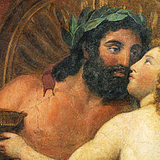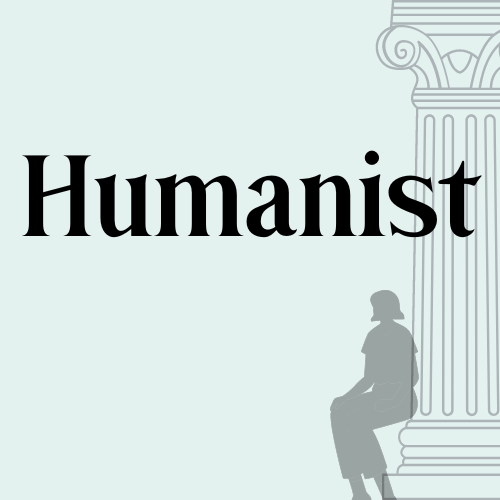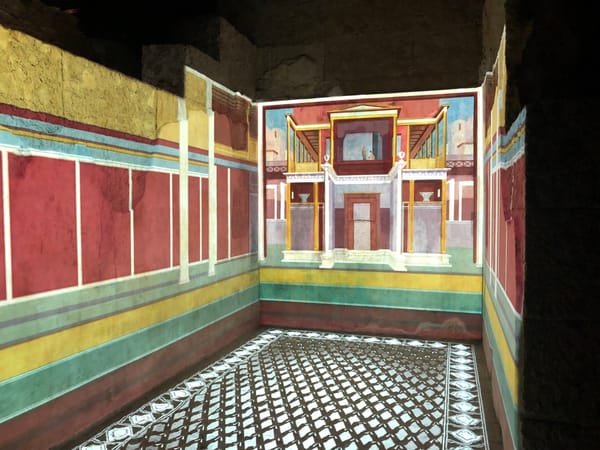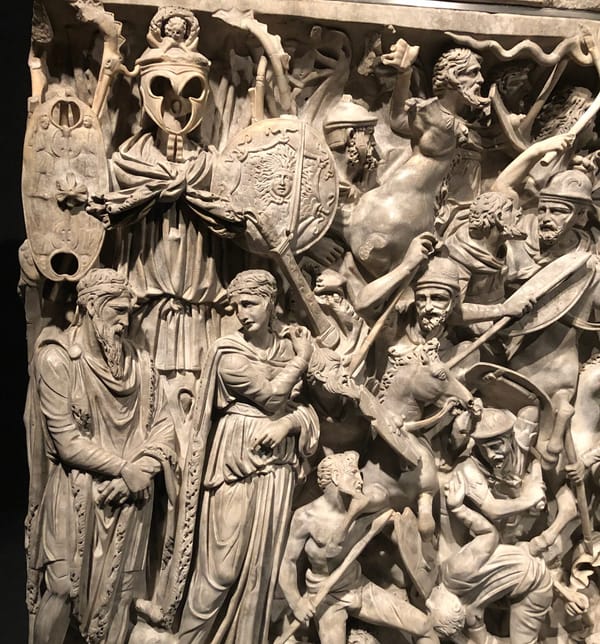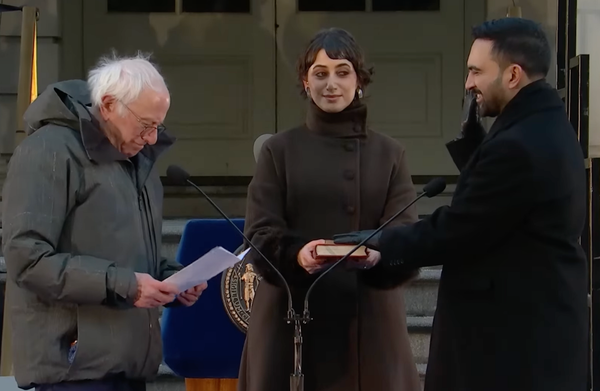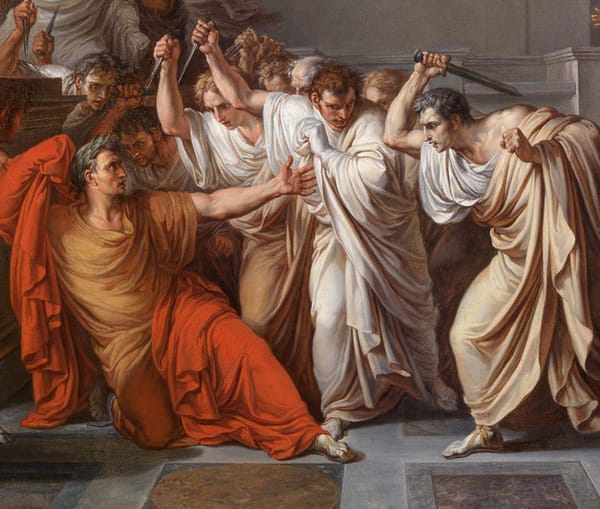Lysistrata in Liberia
Reading Aristophanes’ Lysistrata with Leymah Gbowee’s memoir Mighty Be Our Powers
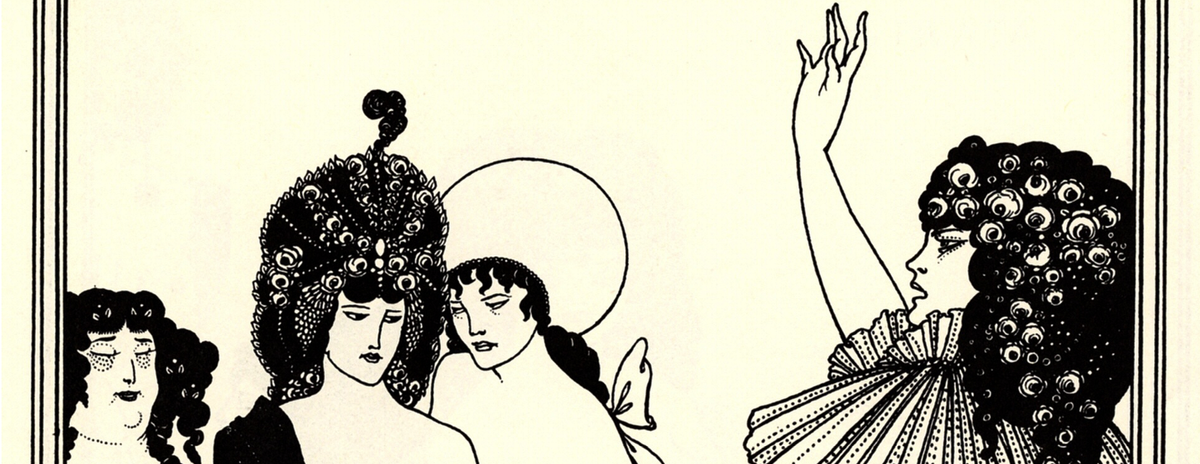
Reading Aristophanes’ Lysistrata with Leymah Gbowee’s memoir Mighty Be Our PowersAubrey Beardsley, “Lysistrata Haranguing the Athenian Women” (1896)
“One day, when Asatu was talking to a journalist, she joked, ‘Maybe it will just get to the point where we deny men sex!’ Everyone laughed, but it was something to think about: as a woman, you have the power to deny a man something he wants until the other men stop what they are doing. We announced on the radio that because men were involved in the fighting and women weren’t, we were encouraging women to withhold sex as a way to persuade their partners to end the war. The message was that while the fighting continued, no one was innocent — not doing anything to stop it made you guilty… The strike lasted, on and off, for a few months. It had little or no practical effect, but it was extremely valuable in getting us media attention. Until today, nearly ten years later, whenever I talk about the Mass Action, ‘What about the sex strike?’ is the first question everyone asks.”
Leymah Gbowee published her memoir, Mighty Be Our Powers, in 2011. That year, she also won a Nobel Peace Prize for her work on the Mass Action for Peace and with women’s peace groups in her native Liberia, fighting to end a decades-long civil war. Her memoir is extraordinary: while describing her participation in the movement and her remarkable accomplishments as one of its leaders, she is also frank and forthcoming about her personal life, her struggles, and her mistakes. She situates her memories in the context of Liberian culture and history in a compelling, approachable way. The passage from her memoir quoted above recalls Aristophanes’ Lysistrata, the most famous ancient literary antecedent (if not the inspiration) of many instances in the modern world when women have denied their husbands sex to bring about social and political change (Lysistrata Project Archives).
In 2013, Helen Morales wrote about Gbowee’s movement, particularly lectures she gave in the US, and connections with Lysistrata (“Aristophanes’ Lysistrata, the Liberian ‘sex strike’, and the Politics of Reception.”). Morales wrote in response to news articles making comparisons between the two. She pointed out that to call Gbowee a Liberian Lysistrata, and to focus on the Liberian sex strike — treated so dismissively by Gbowee herself, as a tiny part of the women’s movement for peace — instead of describing the brutality of the civil war and the women’s demonstrations, was to trivialize the events in Liberia and the actors in them. The idea of a sex strike was as sensational in Liberia in 2003 as it was in classical Athens, and the international media were as eager to exploit it as Aristophanes was.
Aristophanes might have been looking for laughs, but in his peace plays, his characters find absurd solutions to very real wartime problems. The idea of a sex strike isn’t a comically primitive or remote one, as Gbowee’s narrative demonstrates: women from cultures around the world have tried sex strikes as a way of making their political needs impossible for men in power to ignore any longer. Behind the sex strikes in Aristophanes and in Liberia lies a common experience of wartime, particularly in a kind of war — a long civil war in Liberia and a long war between formerly allied Greek poleis in antiquity — in which it was hard for noncombatants (and probably for those fighting as well) to see what anyone was fighting for. Meanwhile, with the frontiers in that kind of war so close to home, civilians end up suffering the consequences all too often.
By reading Aristophanes against Gbowee’s memoir — and perhaps by treating Lysistrata as an Athenian Leymah Gbowee rather than treating Gbowee as a Liberian Lysistrata — we can draw parallels that do not trivialize, but instead illuminate common aspects of the experience of women in wartime. In an ethics class last year, I had my students read an excerpt from Gbowee’s memoir alongside the Lysistrata in order to prepare them to see a more serious side of Aristophanes’ play. Gbowee and her colleagues take their inspiration from the biblical Book of Esther and not from classical Athens (p. 136), but the figure of the female political dissident, intruding on male decision-making out of frustration with pointless violence and refusing to suffer any longer as a passive victim of her community’s leaders, need not be traced back to a single text or inventor.

The Mass Action, a sit-down on a soccer field down the road from the government headquarters, is set to begin one morning at dawn. Gbowee, like Lysistrata, waits anxiously to see if her fellow wives and mothers are going to leave their domestic routines behind to assert their political voice. “The salvation / of all of Greece lies in the women’s hands!” (Lysistrata 29–30, trans. Henderson) and “All the women, if they’d only come, / the Theban women and the Spartan women / and us, together we could rescue Greece!” (39–41).
Like the Greek women (after some nerve-wracking delay), the women of Liberia come in throngs — from rural villages, urban universities, and everywhere in between — coming together like the women of Athens and Sparta in Lysistrata, because “the men have failed” (p. 134). Gbowee rallies the crowd: “‘In the past, we were silent,’ I told the crowd. ‘But after being killed, raped, dehumanized and infected with diseases, and watching our children and families destroyed, war has taught us that the future lies in saying no to violence and yes to peace! We will not relent until peace prevails!’” (p. 135).
The prevalence of rape as a part of war in Liberia (as in so many other conflicts today) is a solemn reminder that Gbowee’s world is a far cry from Aristophanes’ comic one; if the women of Greece routinely faced rape as an instrument of war, our sources suppress that fact. Aristophanes’ comic women anticipate having sex forced on them (159–66, 225–32), but they are more concerned about going without sex and teasing the frustrated men than about rape (107–110):
And how about our lovers? They’re gone too.
And since we don’t get any imports anymore,
we can’t even buy a decent twelve-inch dildo.
The Liberian women’s outrage over the deaths of their children and husbands, however, echoes Lysistrata’s justification for women’s sudden involvement in military decisions: asked what women know of war, Lysistrata shoots back, “Even more than you do, asshole. / First of all we make the children, / Then we send them off to war…” (587–9). It is primarily as mothers (and wives) that the community of women in each case identifies, protesting war’s assault on this identity in particular. It is to see her son that Myrrhine initially leaves the Athenian citadel in Aristophanes’ famous scene of temptation and frustration. The women leave their homes en masse in order to protect those very homes, as Lysistrata and Gbowee desperately hoped they would. Motherhood motivates women in both worlds, and it is where they find their authority. Both Lysistrata and Gbowee ground their incursions into politics in traditional female roles, and the many Liberians who call out their support for the Mass Action participants as “Mothers” highlight that shared identity.
The president of Liberia, military dictator Charles Taylor (convicted of war crimes and crimes against humanity in April 2012), like Aristophanes’ Magistrate, confronts the women in person and tries to intimidate them, to no effect. Some husbands in both cases try to beat their wives into submission. “But what did you expect? Did you imagine / that we were slaves, or did you think that women / cannot show courage?” (463–5).
The larger threat to each movement, however, seems to be posed by the women themselves. Lysistrata’s comrades try to sneak away to have sex, abandoning the larger cause to satisfy lesser appetites; in Liberia, internal rivalries along lines of ethnicity, socio-economic status, age, and religion threaten the solidarity of the Mass Action participants. But Gbowee and her colleagues remind their supporters, “We must come together as women, only as women, the one thing we share that can never divide us…When a rich woman bathes, what does she see? Breasts. A vagina. When a poor woman bathes, what does she see? The same. When the soldiers come to rape, what do they look for? When children die, it is always the mothers who grieve” (p. 144).
More surprising and difficult to explain is a final, striking narrative parallel: both of these texts culminate in a truce struck over the naked body of a woman. In Lysistrata, in a scene which embarrassed and confounded my students (and many others, including myself), Lysistrata leads the naked female figure — or a man costumed to look like one — of “Reconciliation” onstage, who lays her hands on representatives from Athens and Sparta. The men hurry to relieve their Priapic suffering, each claiming the “gulfs” and “promontories” of Reconciliation for himself, and quickly resolving disputes that arise over this divvying up of feminine territory before rushing off to a climactic celebration. In Gbowee’s Mighty Be Our Powers, the tenor of the scene is (of course) quite different. She travels to a peace summit in Ghana and is first disappointed, then appalled by the “negotiators,” who regard the summit as a state-funded vacation.
One day, she reaches a breaking point. “If I’d had an AK-47 right then, I would have returned to the conference room and slaughtered everyone inside,” she writes (p. 160). Leading a group of protestors from their seats outside the building, she barricades the men inside on their lunch break:
“‘Sit at this door and loop arms,’ I instructed [the women]. ‘No one will come out of this place until a peace agreement is signed.’ …Immediately security guards rushed into the hall. ‘Who is the leader of this group?’ one called out. ‘Here am I,’ I said, rising to my feet. ‘You are obstructing justice and we are going to have to arrest you.’ Behind me, the door to the negotiating room opened and men’s faces peered out. Obstructing justice? Had he really said that to me? Justice? I was so angry, I was out of my mind. ‘I will make it very easy for you to arrest me. I’m going to strip naked.’ I took off my hair tie. Beside me, Sugars rose to her feet and began to do the same. I pulled off my lappa, exposing the tights I wore underneath. ‘No, no!’ shouted the husband of one of our protesters, a Liberian banker who had come to the talks that day. I didn’t have a plan when I started taking off my clothes. My thoughts were a jumble — Okay, if you think you’ll humiliate me with an arrest, watch me humiliate myself more than you could have dreamed. I was beside myself, desperate. Every institution that I’d been taught was there to protect the people had proved evil and corrupt; everything I valued had collapsed. These negotiations had been my last hope, but they were crashing, too. But in threatening to strip, I had summoned up a traditional power. In Africa, it’s a terrible curse to see a married or elderly woman deliberately bare herself. If a mother is really, really upset with a child, she might take out her breast and slap it, and he’s cursed. For this group of men to see a woman naked would be almost like a death sentence. Men are born through women’s vaginas, and it’s as if by exposing ourselves, we say, ‘We now take back the life we gave you.’” (p. 161–2)
The spectacle of a naked female body — sexualized and treated as territory to be grabbed at in Aristophanes, but a fearsome cultural taboo in Liberia — forces men to acknowledge and even submit to women’s political demands as a matter of necessity. Mighty Be Our Powers, indeed. Military victories and the spoils of war have been soldiers’ sole focus in both of these stories. It is shocking when Lysistrata and Leymah Gbowee stand up to show the soldiers that women actually have something they want and need more than war, and that it belongs to women to give or to withhold it in order to reorient the soldiers’ priorities. Not only their enemies but their own governments have rendered them victims. Taking control of sex, of the female body formerly claimed as male territory, became the first step in taking control of the community. And the women’s refusal to stay at home, to care for whatever family has been left to them, or to observe their usual social roles, signals the realization of that takeover.
In stepping outside the home, each mother and wife linked her individual identity with that of her fellow women, joining a Mass Action for Peace which could not be ignored. It’s easy to see women as typically peripheral to war, and to see the suffering of women as a side effect of the activities of soldiers. Gbowee — and Lysistrata, for that matter — reminds us that women, too, are participants in war even when they do not take up arms, affected by trauma and violence like soldiers, and often more directly connected to the experiences of wartime than the bureaucrats and officials making decisions for their communities.

Joanna Kenty is a post-doctoral fellow in the Department of Classics, Humanities, and Italian Studies at the University of New Hampshire.

